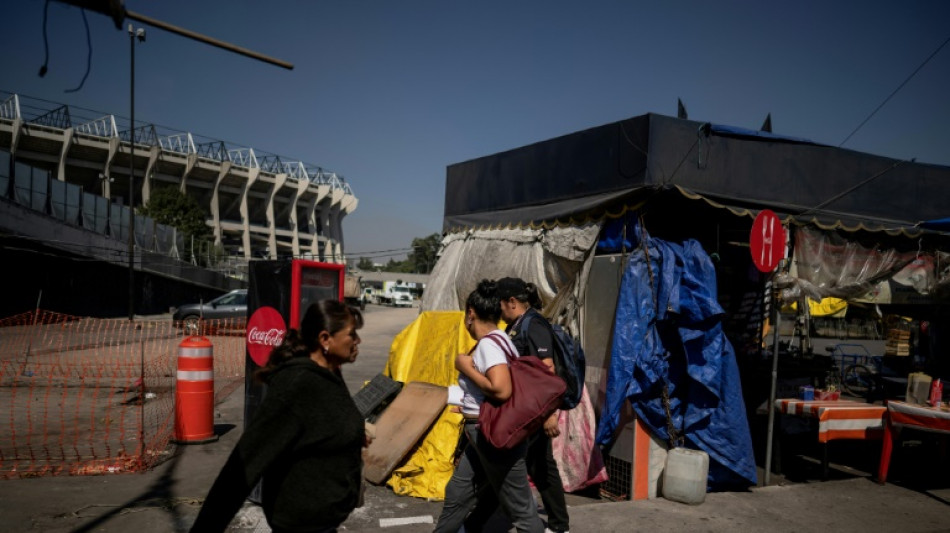

On Mexico City's streets, vendors fight to make it to World Cup
Mexico is hoping for an economic windfall when it hosts matches including the opening game of the 2026 World Cup, but the capital's iconic street vendors see not only opportunity but dangers.
"The expectation is zero," said Alejandra Zarazua, who fears she will be evicted from her normal spot near the Azteca Stadium where she sells Mexican gelatin desserts.
Yet Japanese chef Satoru Hasuike, who runs a ramen stand in the city, hopes to operate officially in the Azteca "with a street food vibe."
Mexico will host 13 matches in June and July, with five in the capital.
Its tourism ministry estimates that the World Cup will generate nearly $3 billion (2.6 billion euros) in economic benefits.
In Mexico City, retailing both inside the stadium, where world soccer's governing body FIFA traditionally supervises who can sell, and in the surrounding area, is stirring up debate.
Street food vendors are a quintessential ingredient of the vast Mexican capital and one of its biggest attractions for foreign visitors.
A government study this year calculated that 1.5 million people earned their living vending on the streets of the megacity.
There has been friction before. In 2007 local government sent police in riot gear to clear street businesses out of the historical centre.
- 'Like the Mafia' -
Those with food stands near the Azteca Stadium fear they are under threat again.
"I'm worried about how I'm going to survive," said Zarazua, a 55-year-old former hospital worker, adding she has been warned to leave the area.
She said she is trying to develope a backup plan.
"But I understand that I won't even be allowed to sell while walking around," she said.
About 20 stalls in her area are slated to be relocated to a nearby avenue, already teeming with street vendors.
Near the Azteca, on a pedestrian bridge leading to the train station, workers have been clearing debris where, until late October, dozens of stalls stood.
"They took everything during the night. We don't know where our things are," laments a person who had been there since the 1980s and asked to remain anonymous for fear of reprisals.
Another vendor refused even to talk to anyone taking notes.
"Don't let them see me giving out information," the vendor whispered before adding: "This is a Mafia. There's a lot of money involved here. You have to bribe the leaders and the authorities.
"FIFA doesn't like us, that's why they're taking us away."
One officials told AFP that vendors will be moved elsewhere, adding that negotiations are underway to determine where they will be sent.
The stalls do not have official permits. They are described as "tolerated" and their owners are defenceless.
Even so, other street vendors believe the World Cup will offer a business opportunity.
- 'Always find a solution' -
Separated from the Azteca Stadium by a simple fence, "El Estadio" sandwich shop proudly displays portraits of Brazilian legend Pele and Argentina superstar Diego Maradona, crowned world champions at the 1970 and 1986 World Cups respectively in Mexico.
"I'm learning English to serve the international clientele," said owner Oscar Hernandez, but he added that he is considering alternative solutions in case his shop has to close.
"As a Mexican, you always find a solution. I'll set up a stall two streets away, and if they won't let me, I'll go out with my sandwiches in a bag and sell them."
On the other side of the city, in the Roma-Condesa neighbourhood, home to many American digital expats, Hasuike is thriving with his ramen stand that draws long lines in part thanks to the videos he posts on TikTok.
He says he hopes to operate in the Azteca on match days.
"I have to sign a contract with FIFA to set up a shop inside the stadium, not a stand, with a street food vibe," he said, without revealing the amount he will have to pay.
W.Wouters--JdB



